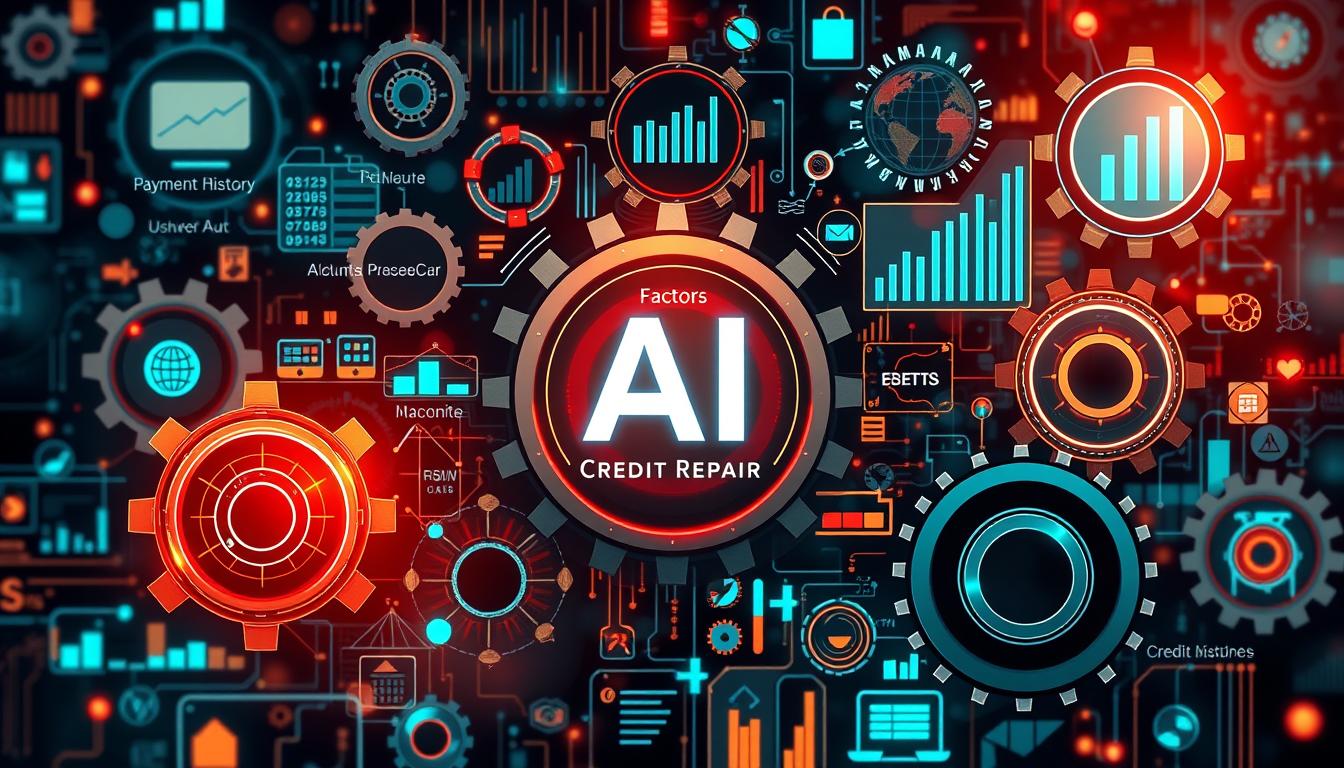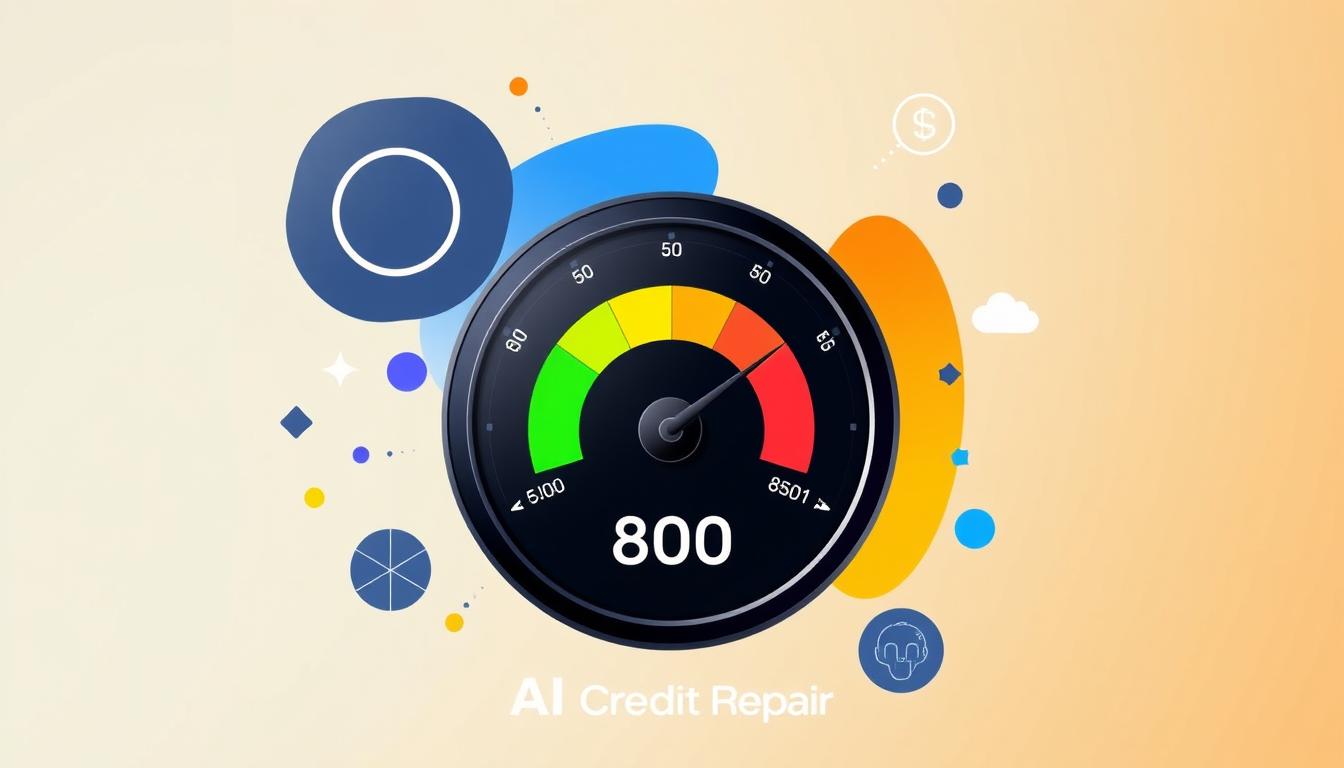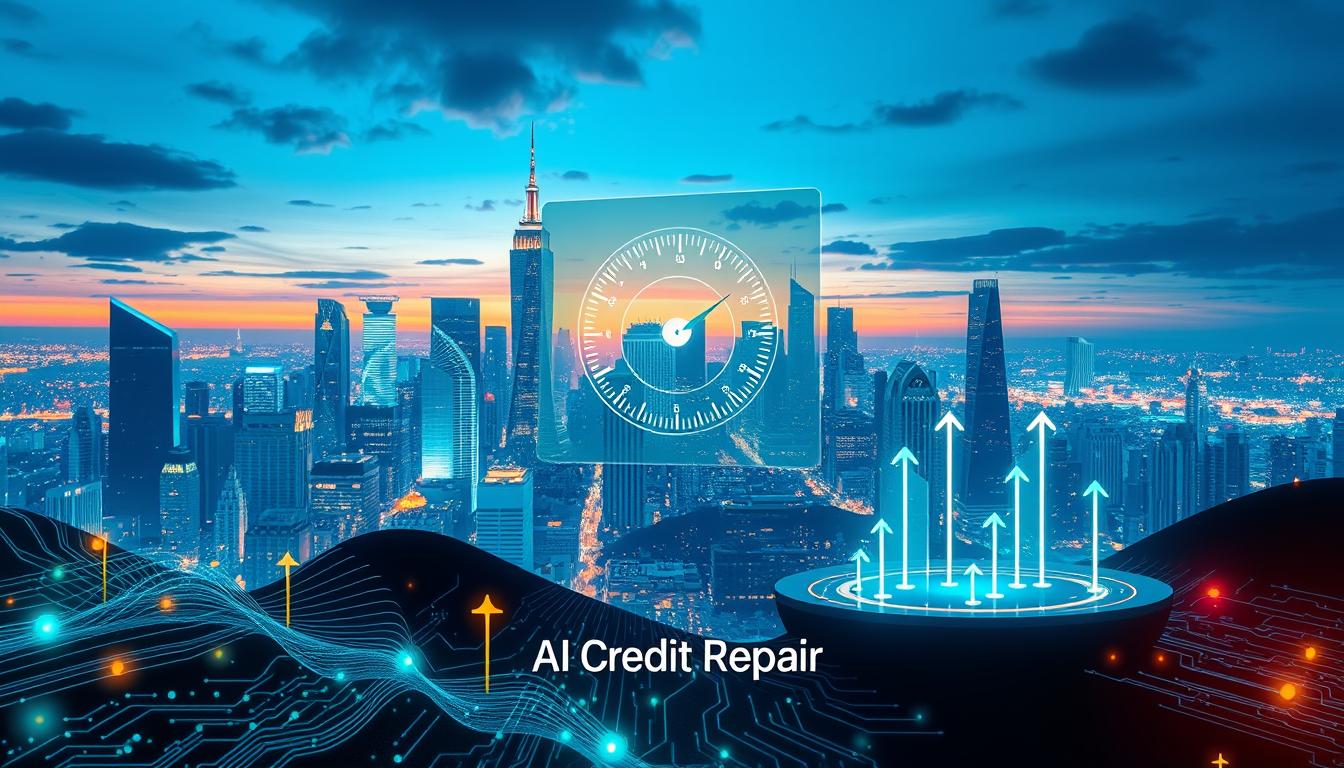AI-powered credit scoring systems are changing how lenders assess creditworthiness. These tools offer a more personalized approach to evaluating financial profiles. They use data-driven methods to provide a comprehensive view of an individual’s financial health.
AI is revolutionizing the credit industry. It’s important to know what makes a “good” AI credit score. Understanding this can greatly impact your financial future.
Key Takeaways
- AI credit scores are transforming the way lenders evaluate creditworthiness.
- Understanding what constitutes a “good” AI credit score is crucial for making informed financial decisions.
- AI-powered credit insights can provide a more personalized and data-driven evaluation of an individual’s financial profile.
- Factors like payment history, credit utilization, and credit mix can influence an AI credit score.
- Improving your AI credit score can help you access better lending terms and financial opportunities.
Understanding AI Credit Scores
AI technology is reshaping credit scoring. AI credit scoring systems offer a more thorough and personalized approach to evaluating creditworthiness. These systems go beyond traditional credit scoring models.
How AI is Revolutionizing Credit Scoring
AI-based credit scoring models analyze a wider range of data points. They use advanced algorithms and machine learning to spot complex financial patterns. This method allows for a more accurate assessment of individual credit profiles.
The Benefits of AI-Powered Credit Insights
AI credit reporting and ai credit analysis can improve access to credit. They identify creditworthy individuals often missed by traditional models. AI-powered systems also reduce bias and discrimination risks.
AI-driven insights help people understand their financial standing better. They uncover hidden financial patterns and provide valuable guidance. This empowers consumers to make smart decisions and improve their creditworthiness.
“AI is transforming the credit scoring industry, offering a more comprehensive and personalized approach to evaluating creditworthiness.”
Factors Influencing AI Credit Scores
AI-powered credit scoring considers a wide range of factors. These go beyond traditional metrics like payment history and credit utilization. Understanding these elements can help improve your financial standing and access better lending terms.
Payment history is a primary factor in AI credit scores. It shows your reliability and financial responsibility. Credit utilization also plays a significant role, indicating how well you manage your credit resources.
- Payment history
- Credit utilization
- Credit mix (e.g., mortgages, credit cards, personal loans)
- Length of credit history
- New credit applications and inquiries
- Non-traditional data points (e.g., online shopping behavior, social media activity)
AI credit scoring models also consider non-traditional data points. These include online shopping behavior, social media activity, and geographical location. Such factors provide insights into an applicant’s financial habits and stability.
“The more data points an AI model can analyze, the more accurate and insightful the credit score can be.”
Understanding these factors affecting AI credit score can help you improve your financial profile. It allows you to take steps towards unlocking more favorable lending opportunities.

What is a Good AI Credit Score?
AI is changing how credit scores work. Understanding a “good” AI credit score is crucial. Like traditional scores, AI scores have ranges. Higher scores usually mean lower credit risk.
Interpreting Your AI Credit Score Range
AI credit score ranges can differ between lenders. Here’s a general guide to understanding your AI credit score:
- AI credit scores ranging from 700 to 850 are typically considered “good” or “excellent,” indicating a low credit risk and a strong creditworthiness profile.
- Scores in the 600 to 699 range are generally considered “fair,” suggesting moderate credit risk.
- AI credit scores below 600 are often viewed as “poor,” indicating a higher credit risk and potential difficulties in obtaining favorable lending terms or credit approvals.
These ranges aren’t fixed. They can vary across AI credit scoring models. Learn about the scoring ranges used by your lenders. This helps you understand your AI credit score better.

“Understanding your AI credit score range is crucial in today’s digital lending landscape, as it can directly influence the availability and terms of credit offers you receive.”
Knowing your AI credit score helps you make smart money choices. You can take steps to improve your creditworthiness. Stay informed about AI scoring to manage your finances better.
The Impact of AI Credit Scores
AI credit scores are reshaping lending decisions in the digital age. These scores use artificial intelligence to assess creditworthiness. This new approach can significantly affect consumers seeking credit.
How AI Credit Scores Affect Lending Decisions
Lenders now use AI credit score models to evaluate applicants. These advanced algorithms analyze various data points, including traditional credit history and alternative sources. This creates a more detailed picture of a borrower’s financial status.
AI credit scores influence loan approvals, interest rates, and credit terms. A high score can lead to better lending opportunities. It may unlock lower interest rates, higher loan amounts, and access to special financial products.
On the other hand, a low AI credit score can limit options. It might result in loan denials or higher borrowing costs. This can make it harder for consumers to get the credit they need.
| Factors Influenced by AI Credit Scores | Impact on Consumers |
|---|---|
| Loan Approvals | Higher approval rates and access to credit for those with strong AI credit scores |
| Interest Rates | Lower interest rates for borrowers with favorable AI credit scores |
| Loan Amounts | Ability to secure larger loan amounts for those with high AI credit scores |
| Access to Specialized Financial Products | Eligibility for specialized credit offerings, such as mortgages or auto loans, based on AI credit score |
AI credit scores are becoming more common in lending. It’s important to understand how they work. By managing their finances well, people can improve their AI credit scores.
This can lead to better credit access and loan terms. Staying informed about these changes is key for navigating the lending world.

Improving Your AI Credit Score
A strong AI credit score is vital for better lending terms. You can take practical steps to boost your score and financial standing. These actions will enhance your overall creditworthiness.
Regularly check your credit report for errors. Promptly address any inaccuracies you find. Incorrect information can harm your AI credit score.
- Review your credit report regularly to identify and correct any errors.
- Dispute any inaccuracies with the credit bureaus to ensure your credit report reflects your true creditworthiness.
- Maintain a healthy credit mix, including a combination of different types of credit accounts, such as credit cards, loans, and mortgages.
- Reduce your debt levels and keep your credit card balances low to improve your AI credit score.
Pay your bills on time to positively impact your score. Keep your credit card balances low. These habits will help improve your AI credit score.
Implementing these strategies can lead to better lending opportunities. You’ll position yourself for improved financial outcomes.
“Improving your AI credit score takes time and effort, but the rewards can be significant in terms of access to better financing options and more favorable terms.”
Your AI credit score reflects your financial behavior. By taking proactive steps, you can unlock new financial possibilities.

AI Credit Scores vs. Traditional Credit Scores
AI-powered and traditional credit scores are two main approaches to credit scoring. They differ in their methods and data sources. Understanding these differences can help you make better financial choices.
Key Differences
AI credit scores and traditional credit scores use different data and algorithms. AI credit scores use machine learning to analyze a wide range of information. This includes non-traditional financial data, social media activity, and behavior patterns.
This approach aims to give a fuller picture of a person’s creditworthiness. Traditional credit scores mainly use credit report data. This includes payment history, credit use, and credit history length.
While this method has been used for years, it may not fully capture modern consumers’ financial profiles. This is especially true for those with limited credit history or unusual financial behaviors.
Similarities and Advantages
Both AI and traditional credit scores aim to evaluate creditworthiness. They provide lenders with a way to assess credit risk. Both types of scores can help consumers understand their financial standing.
AI credit scores offer a more complete view of creditworthiness. They use more data to find patterns that traditional methods might miss. This can lead to fairer credit decisions.
AI-powered models may help people with unique financial situations or limited credit histories. They offer a more inclusive approach to assessing financial risk.
“AI credit scores have the potential to revolutionize the way we evaluate creditworthiness, offering a more dynamic and inclusive approach to assessing financial risk.”
The Future of AI in Credit Scoring
Credit scoring is undergoing a major change thanks to AI technology. AI-powered credit scoring is reshaping how lenders assess creditworthiness. This shift will have a big impact on lending decisions.
Real-time data analysis is a key trend in AI credit scoring. Lenders use AI to process vast amounts of data. This includes transaction histories, social media activity, and online behavior.
AI systems can now suggest personalized credit products and terms. This helps consumers make better financial choices. It also improves the relationship between lenders and borrowers.
Traditional credit bureaus are teaming up with fintech companies. This partnership combines expert knowledge with AI’s analytical power. As a result, lenders can access more accurate creditworthiness assessments.
However, data privacy and security concerns are growing. Addressing these issues is crucial for the technology’s future. Both lenders and consumers want more control over personal financial data.
The future of AI in credit scoring offers a more personalized lending landscape. It will be data-driven and efficient. Understanding these trends can help prepare for future financial challenges.
Addressing Privacy Concerns
AI-powered credit scoring is growing, raising concerns about data privacy and security. People worry about how their personal information is used and protected. These advanced models are under scrutiny for their data handling practices.
Ensuring Data Security and Transparency
Industry leaders are taking steps to enhance data security in AI credit scoring. They’re also promoting transparency in their practices. These actions aim to address valid privacy concerns with AI credit scoring.
- Rigorous data encryption and access controls to protect sensitive consumer information
- Detailed explanations of the AI algorithms and data sources used in credit scoring models
- Opportunities for consumers to review and dispute the information used in their credit assessments
- Robust cybersecurity measures to prevent data breaches and unauthorized access
AI credit scoring providers aim to build trust by upholding high data protection standards. They’re committed to responsible data practices. This approach is crucial for the success of these innovative credit assessment solutions.
“Maintaining the privacy and security of consumer data is of paramount importance as AI continues to transform the credit scoring industry.”
As AI credit scoring grows, lenders must prioritize protecting personal information. They need to ensure ethical development of these technologies. Addressing privacy concerns with AI credit scoring is crucial.
Reinforcing data security in AI credit scoring is equally important. These efforts will help unlock AI-powered credit insights’ potential. They’ll also help preserve consumer trust in the industry.
Choosing the Right AI Credit Scoring Provider
Selecting an AI credit scoring provider is crucial for your financial goals. Consider data accuracy, model transparency, and customer support quality. These factors help maximize AI-powered credit insights for your financial future.
Look for companies that prioritize data integrity when evaluating best AI credit scoring providers. Seek clear explanations of scoring methodologies. Understanding how AI models assess credit is important.
Consider the level of customer support provided. Reliable assistance can greatly improve your experience with the service.
The right AI credit scoring service delivers accurate credit data and empowers informed financial decisions. Research and compare options carefully. This approach helps you leverage AI for your financial goals.

